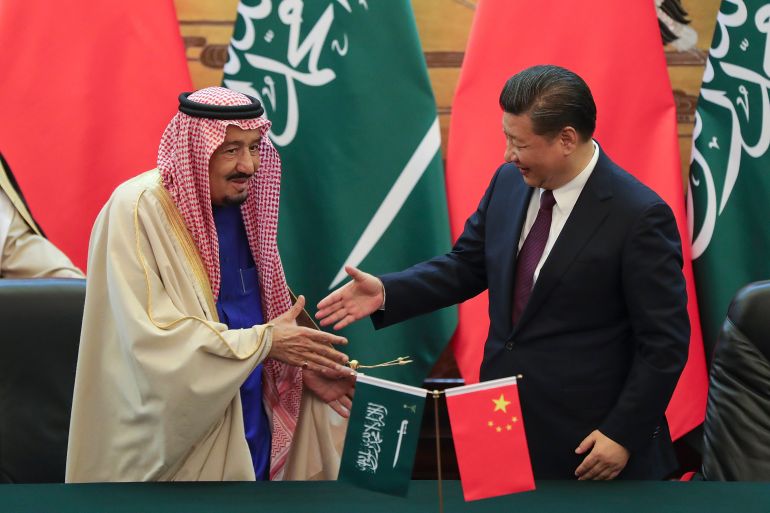Saudi Partners With Shanghai Cooperation Organization
On Wednesday, the Saudi state news agency SPA reported that Riyadh moved closer to joining the Shanghai Cooperation Organization (SCO), the latest step signaling deepening ties between Saudi Arabia and China....

Facts
- On Wednesday, the Saudi state news agency SPA reported that Riyadh moved closer to joining the Shanghai Cooperation Organization (SCO), the latest step signaling deepening ties between Saudi Arabia and China.1
- In a meeting chaired by King Salman, the Saudi Cabinet on Tuesday agreed to grant Riyadh a 'dialogue partner' status in the regional political, security, and trade organization. This move was reportedly discussed last December during China's Xi Jinping's visit to the Arab country.2
- The Eurasian alliance, established in 2001 by China, Russia, and the Central Asian states of Uzbekistan, Kazakhstan, Kyrgyzstan, and Tajikistan, expanded to include India and Pakistan as full members in 2017 and Iran in 2021.3
- As King Salman on Wednesday also approved the launch of technical and vocational training between the kingdom and Beijing, Crown Prince Mohammed bin Salman the previous day thanked Beijing for fostering 'good neighborly relations' between Saudi Arabia and Iran.4
- In early March, China mediated a deal between longtime rivals Saudi Arabia and Iran to resume diplomatic ties and reopen embassies in each other's countries, ending seven years of political conflict. The two sides also agreed to restore cooperation on security issues.5
- Meanwhile, the world's largest oil producer, state-owned Saudi Aramco, on Monday announced an agreement to acquire a 10% interest in China's Rongsheng Petrochemical for $3.6B. The deal covers the supply of 480K barrels of crude oil per day over 20 years.6
Sources: 1Reuters, 2Al Jazeera, 3Middle east monitor, 4Al arabiya english, 5New York Times and 6Gulf business.
Narratives
- Establishment-critical narrative, as provided by Al. Riyadh's gradual entry into the SCO, which was established to counter US regional dominance, is further evidence that the multipolar era has dawned. Moreover, by withdrawing from the Middle East to better focus on domestic issues and China, Washington has further accelerated Beijing's regional rise. Washington may remain the region's undisputed arms supplier, but its political and economic influence continues to wane.
- Pro-establishment narrative, as provided by Washington Post. The fact that countries like Saudi Arabia are turning eastward doesn't necessarily mean that they are walking away from the US. They just no longer consider themselves passive objects in an ideologically charged great power rivalry. If Washington adjusts to this new reality by expanding regional alliances and offering its own economic projects, it will be able to safeguard its strategic interests against China's growing influence.






